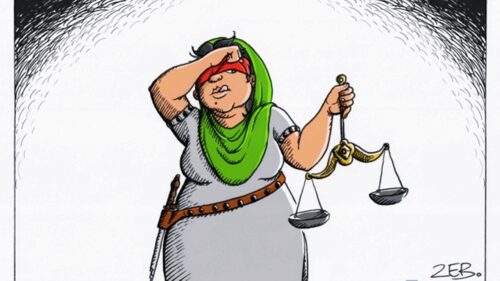The Shawshank Redemption, a movie released in 1994, is based on a story in which a banker is falsely convicted of murdering his wife and her ex-lover. As a consequence, he is punished in Shawshank Prison for a crime he did not commit. Despite his situation, he does not lose hope. After several years of perseverance and patience, he finds a way to escape from the jail, thus achieving freedom. The film conveys the message that in times of adversity, one must not lose hope. With perseverance, one’s efforts can eventually lead to redemption.
Drawing a parallel with the plot of The Shawshank Redemption, the latest judgment of the Supreme Court awarding reserved seats to the Pakistan Tehreek-e-Insaf (PTI) can also be seen as an act of redemption by the courts. The PTI had previously been deprived of its ‘cricket bat’ electoral symbol during the elections but did not lose hope. The PTI, along with the Sunni Ittehad Council (SIC), sought reserved seats through a petition in the form of an appeal to the same Supreme Court which had earlier deprived it of its electoral symbol before the election. The previous judgment did not heed the Benazir Bhutto versus Federation of Pakistan case, which had accorded that the existence/formation of political parties and the securing of an electoral symbol was a fundamental right of the citizens of Pakistan, as outlined in Article 17 of the Constitution. In my view, the latest judgment of the Supreme Court awarding the reserved seats in question should be perceived as rectifying the adverse impact of the previous judgment, thereby representing a form of redemption.
The views expressed in this article are those of the author and do not necessarily represent the views of CourtingTheLaw.com or any other organization with which he might be associated.


